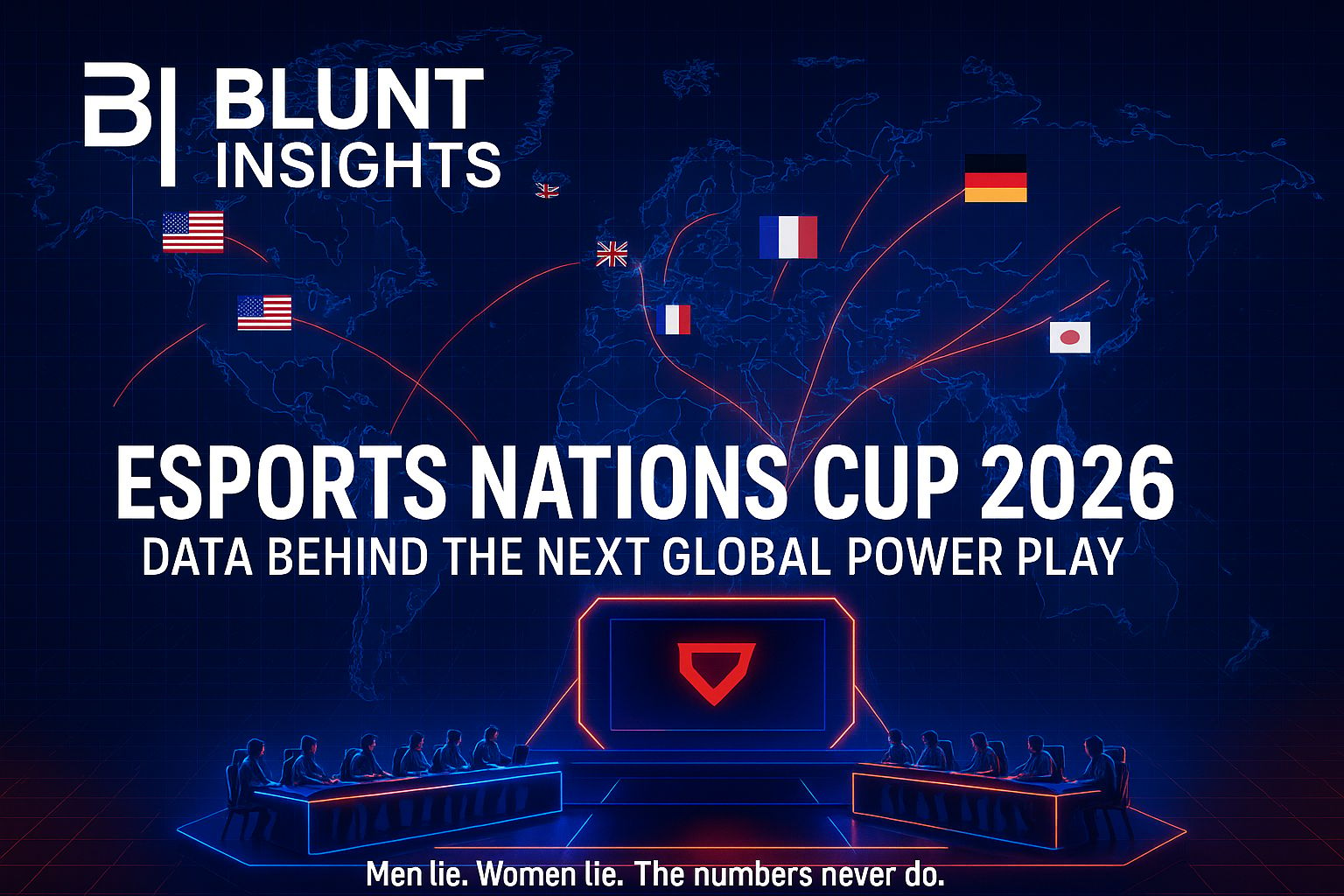The Headline
Esports is about to take its biggest leap yet.
The Esports Nations Cup (ENC) — launching in 2026 — isn’t just another tournament. It’s the birth of a World Cup-style national competition, with 100+ countries, 1,500 players, and 15+ esports titles. The prize? Not just medals, but a seat at the table for the first Olympic Esports Games in 2027.
This is data-backed disruption. Let’s cut through the noise.
📊 The Hard Numbers
Metric | Value |
|---|---|
Organizer | Esports World Cup Foundation (EWCF), Riyadh |
Debut | November 2026, Riyadh |
Frequency | Biennial (every 2 years) |
Regions Represented | 7 (NA, SA, Europe, MENA, Africa, Asia, SEA & Oceania) |
Countries | 100+ (estimated) |
Players | ~1,500 |
Game Titles | 15+ |
Format | National teams (solo + team) |
Qualification | Global rankings, regional qualifiers, wildcards, solidarity slots |
Publisher Partners | EA, Krafton, Tencent, Ubisoft |
Strategic Tie-In | Olympic Esports Games 2027 |
🔎 Analytics & Strategic Positioning
1. Nation vs. Club — Emotional Economics
Clubs dominate esports today (e.g., Fnatic, T1, Cloud9).
The ENC introduces national identity — which historically 10x’s fan passion metrics (see FIFA, Rugby World Cup, Olympics).
National esports bodies can expect higher engagement per viewer than franchise models due to pride factor.
2. Saudi Arabia’s Vision 2030 — The Host Advantage
Saudi is positioning Riyadh as the epicenter of global esports.
With $40B earmarked for gaming and esports investment under Savvy Games Group, the ENC isn’t just competition — it’s state-backed industry engineering.
Riyadh hosting the debut gives the Kingdom first-mover advantage in esports geopolitics.
3. Data on Market Growth
Global esports revenue (2025): ~$4.1B (Newzoo).
Projected CAGR through 2030: 9–11%, driven by media rights, sponsorship, and live events.
Viewership: 650M projected by 2027 (Statista).
National competitions historically generate +25–40% spikes in unique viewership vs. club competitions (FIFA, IOC comparables).
4. Why Publishers Are Onboard
EA (FIFA), Krafton (PUBG), Tencent (LoL, Honor of Kings), Ubisoft (R6 Siege) — each has an incentive to attach to ENC.
Publisher benefit: Expands their titles’ legitimacy as “global sport,” boosting sales and player base.
Expect publishers to use ENC as a launchpad for new title monetization pipelines (skins, national jerseys, sponsorship overlays).
5. Olympic Pipeline
ENC is explicitly designed as the qualifier ecosystem for the 2027 Olympic Esports Games.
Translation: If ENC works, esports goes mainstream Olympic — attracting national Olympic committees, government funding, and sports ministries worldwide.
⚔️ Blunt Takeaways
100+ nations. 1,500 players. 15+ games. The ENC isn’t an experiment — it’s infrastructure.
Saudi Arabia is buying esports legitimacy — and leveraging it for global soft power.
National identity = higher engagement. Expect spikes in sponsorship ROI and broadcast numbers.
Publishers win, nations win, Saudi wins. If executed right, the ENC redefines esports as a nation-based global sport, not just entertainment.
If you’re in esports, sports business, or investment:
National Federations → Build pipelines now. ENC qualifiers will be the new Olympics trials.
Sponsors → National jerseys will be the new billboard space of esports. Get in early.
Investors → Track the EWCF’s moves. The 2026 ENC → 2027 Olympic Esports pipeline is the single biggest monetization window esports has ever seen.
Men lie. Women lie. The numbers never do.


